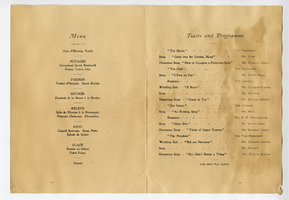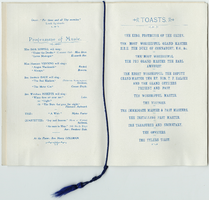Search the Special Collections and Archives Portal
Search Results
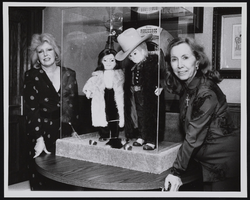
Photograph of people posing with dolls, Las Vegas (Nev.)
Date
Archival Collection
Description
Teddy Jane Binion at right. Standing by a display depicting cowboy and cowgirl dolls in front of the $1,000,000 Binion's Horseshoe. (n.d.)
Image
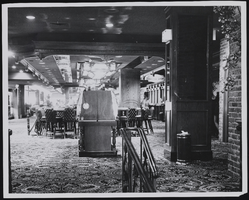
Photograph of slot machines and tables inside the Horseshoe Casino, Las Vegas (Nev.)
Date
Archival Collection
Description
Horseshoe Casino interior. (no date)
Image
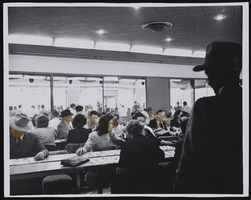
Photograph of bingo players inside the Horseshoe Casino, Las Vegas (Nev.), 1940-1959
Date
Archival Collection
Description
Guests sit in the Horseshoe Club in rows and play Bingo together. Some of the clearly-visible faces of participants have a golden/brown circle on top of them.
Image
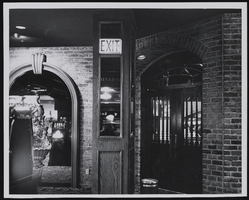
Photograph of slot machines and the casino exit, Las Vegas (Nev.)
Date
Archival Collection
Description
Slot machines and a trashcan are visible in this interior image of the Horseshoe Hotel & Casino, with the exit on the right.
Image
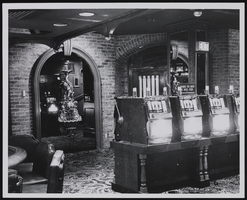
Photograph of slot machines inside the Horseshoe Casino, Las Vegas (Nev.)
Date
Archival Collection
Description
Horseshoe Casino-interior-slot machines in view. (no date)
Image
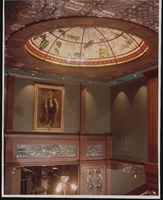
Photograph of a stained-glass ceiling skylight within the Horseshoe Hotel and Casino, Las Vegas (Nev.)
Date
Archival Collection
Description
A photograph of the interior view of Horseshoe Casino-stained glass skylight.
Image
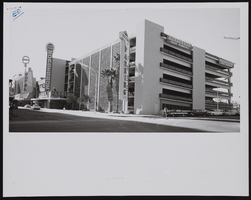
Photograph of Binion's Horseshoe Casino parking structure, Las Vegas, Nevada, approximately 1960 to 1979
Date
Archival Collection
Description
Horseshoe Hotel and Casino-parking garage. (c. 1960s-70s). Stamp on back of photo: "Las Vegas News Bureau Las Vegas, Nevada Convention Center".
Image
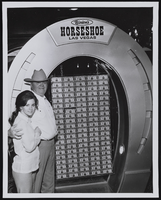
Photograph of Benny and Becky Binion posing in front of the Binion's Horseshoe, Las Vegas, Nevada, circa 1969
Date
Archival Collection
Description
Benny Binion and his daughter Becky posing next to the Million Dollar Horseshoe at the Horseshoe Casino. (c. 1969). Stamp on back of photo: "Las Vegas News Bureau Las Vegas, Nevada Convention Center 18165".
Image

